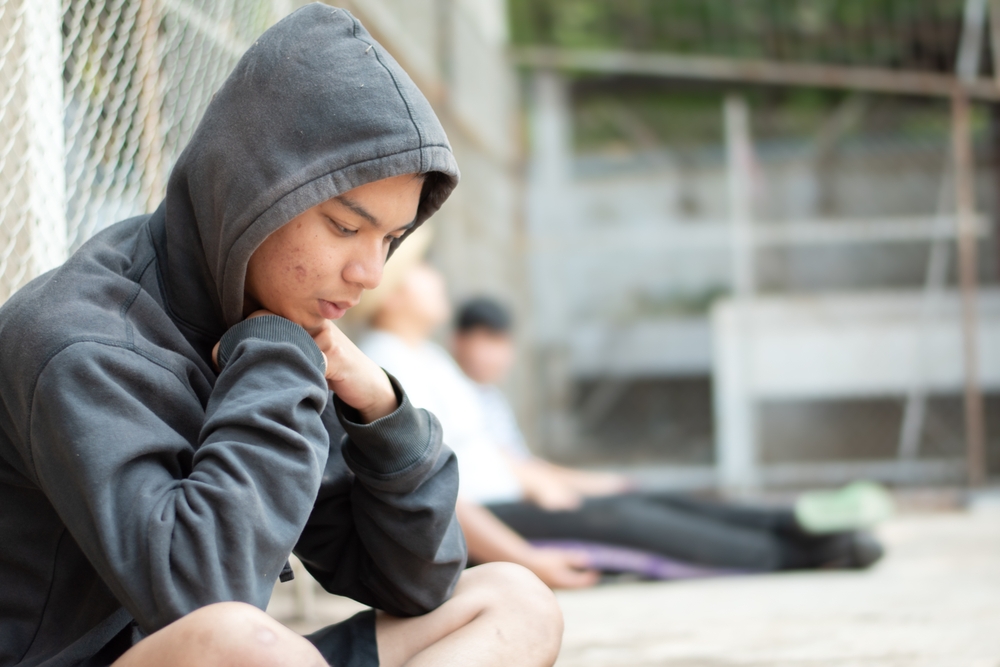Multiple lawsuits have been filed alleging the physical and emotional abuse of children detained in juvenile detention centers across Pennsylvania, the Associated Press reported per NPR affiliate WHYY. The more than 200 plaintiffs claim that they were sexually abused during their incarceration, with some allegations dating back several years. These lawsuits raise critical questions about the state’s oversight of juvenile facilities and mirror broader concerns about the treatment of vulnerable youth within the U.S. justice system.
The abuse is said to have occurred between the early 2000s and the mid-2010s, a period when Pennsylvania’s juvenile detention system was already under scrutiny, most notably, because of the infamous 2008 “Kids for Cash” scandal. The scandal exposed a corrupt scheme in which two Pennsylvania judges accepted kickbacks from privately-run juvenile facilities in exchange for sentencing children to excessive periods of detention for minor offenses. The newly filed lawsuits suggest that abuse persisted in other facilities during the same era, revealing that the culture of neglect and mistreatment may have been more widespread than initially believed.
Many of the lawsuits allege that despite repeated reports of mistreatment, administrators and government officials failed to intervene, allowing the abuse to persist unchecked. The claims also involve incidents of physical violence, prolonged isolation, and emotional abuse. Some former detainees report suffering lasting psychological trauma, with a number of them alleging that they were targeted for especially harsh treatment due to their race or mental health status.
The Defendants
Among the defendants named in the litigation are state officials, individual staff members, and private companies contracted to manage some of the juvenile detention centers. Plaintiffs argue that the state failed to implement sufficient safeguards, pointing to inadequate staff training, underreporting of incidents, and a lack of independent oversight. The lawsuits also accuse several administrators of deliberately ignoring abuse allegations, further exacerbating the mistreatment.
In a lawsuit filed on behalf of 66 individuals, Merakey USA, VisionQuest National Ltd., and Devereux Advanced Behavioral Health were listed as defendants. These private and state-run facilities, including Loysville Youth Development Center, the North Central Secure Treatment Unit in Danville and the South Mountain Secure Treatment Unit near Chambersburg, engaged in or allowed a culture of abuse, including physical violence, sexual assault, and emotional mistreatment, the lawsuit aleges.
Plaintiffs accuse staff at the now-shuttered Northwestern Academy in Coal Township, formerly run by Merakey, of coercing children into sexual acts by manipulating privileges or withholding them. Juvenile detention centers run by VisionQuest and Devereux are accused of failing to prevent sexual abuse, with some plaintiffs alleging rape or sexual misconduct during their stays. Devereux, in particular, faces multiple claims, with reports of children being abused while sedated and restrained, leaving them powerless to resist the mistreatment.
As of now, several settlements have been reached in cases related to these allegations, though the details of these agreements remain confidential. Some plaintiffs have received compensation, while the state has agreed to review its policies regarding juvenile detention practices. However, other lawsuits are still pending, and advocacy groups continue to push for greater transparency and systemic reform.
The litigation speaks to a national crisis surrounding the treatment of juveniles in detention. Across the country, similar lawsuits have been filed in other states, highlighting a troubling pattern of neglect and abuse within youth detention systems. The Pennsylvania case underscores the need for systemic change, including stricter oversight, improved staff training, and a greater focus on rehabilitation over punishment.
As the legal battles continue, pressure mounts on lawmakers to introduce more meaningful reforms to protect incarcerated youth and ensure that juvenile detention centers become safe spaces focused on education, rehabilitation, and emotional support, rather than sites of further trauma.

Leave a Reply